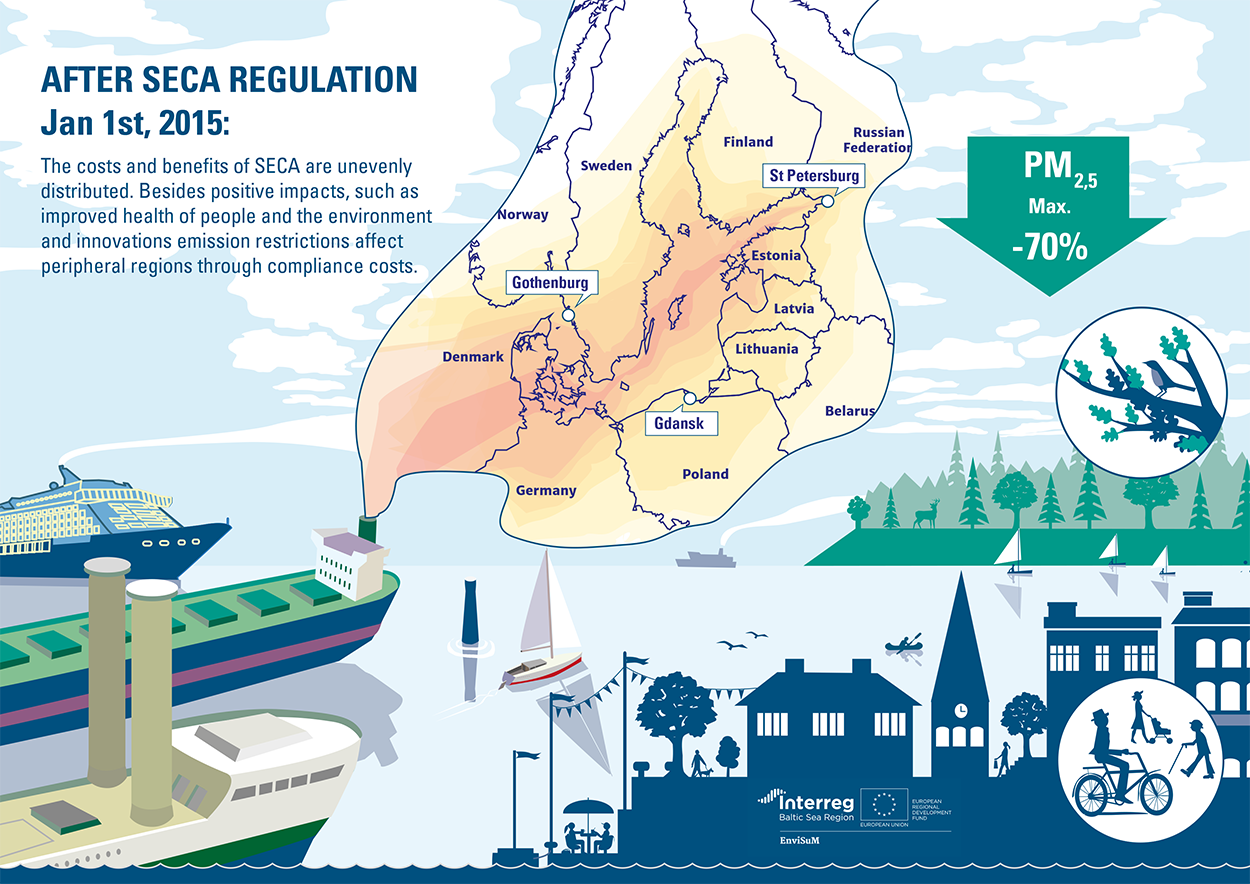Reducing pollution from shipping in the Baltic Sea region was the aim of the EU-funded Environmental Impact of Low Emission Shipping: Measurements and Modelling Strategies (ENVISUM) project. It provided policy makers and authorities with tools and recommendations to develop better environmental regulations.
ENVISUM: Ensuring a cleaner Baltic Sea shipping industry
- 27 May 2019
For the countries bordering the Baltic Sea, the EnviSuM project estimates that between 500 and 1 000 premature deaths have been prevented annually. In addition, a large number of non-lethal cases of heart attacks and strokes have been prevented.
Research institutions, cities and companies from seven countries – Sweden, Estonia, Finland, Norway, Poland, Germany and Denmark – collaborated to develop alternative, sustainable solutions that don’t impose unbearable adjustment costs on the shipping industry. At the same time they looked at reducing the industry’s impact on the environment and people’s health.
From this research, a set of tested and analysed best practices on air quality measurements was compiled. The parties involved shared and improved it, benefitting all Baltic Sea region countries in their efforts to make shipping cleaner.
Pilot projects
The project selected three busy port cities in Sweden, Poland and Russia as pilot projects on air quality measurement. One of these three projects, in the port of Gdansk-Gdynia in Poland, was the first of its kind in that country. Within the project, good practices of available measurement and abatement techniques that meet today’s emission reduction targets were disseminated. Shipping emission inventory tests were performed and updated in all three ports.
According to one of the project partners, ENVISUM helped promote the maritime industry as innovative and willing to uphold the environmental standards set by the International Maritime Organisation. In addition, the research will help the shipping industry invest in the field of eco-innovation.
Vital maritime economy
The Baltic Sea connects nine northern European countries and provides important shipping routes for their maritime industries, which is an essential part of their economies. While maritime traffic across has been steadily increasing over recent decades, so have sulphur emissions from those ships.
Since the beginning of the millennium, the shipping industry has been an important contributor of air pollution. As a result, maritime sulphur emission standards have become increasingly stricter. The Baltic Sea region is among the four Sulphur Emission Control Areas worldwide because of its high levels of emissions. These are areas in which stricter controls were established to minimise airborne emissions from ships.
Total investment and EU funding
Total investment for the project “EnviSuM – environmental impact of low emission shipping: measurements and modelling strategies” is EUR 3 222 539 with the EU’s European Regional Development Fund contributing EUR 2 883 325 through the “Interreg Baltic Sea Region” Operational Programme for the 2014-2020 programming period. The investment falls under the priority “Sustainable transport”.

